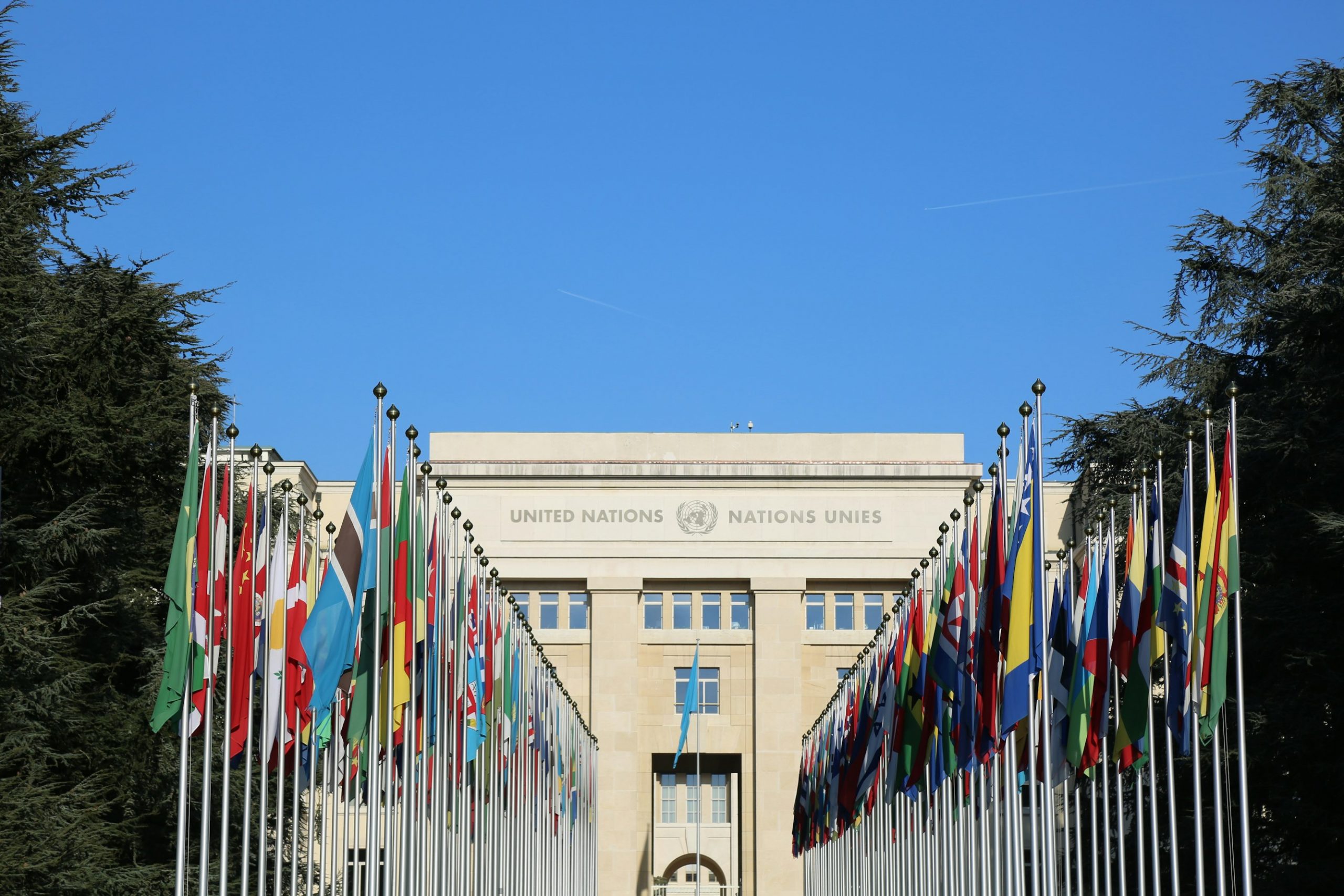On April 7, 2025, the Human Rights & Gender Justice (HRGJ) Clinic, If/When/How, and Pregnancy Justice submitted a report to the United Nations (UN) on the misuse of criminal and civil penalties in the United States. The report highlights how human rights are abused when states pass laws or misuse existing laws to prosecute and punish people based on their pregnancy status or their pregnancy outcomes (including abortions) and the people who help them receive abortion care.
The report, which was also endorsed by the Abortion Care Network, Indigenous Women Rising, Society of OBGYN Hospitalists, and Transcending Strategies LLC, was submitted to inform the UN’s Universal Periodic Review process. Every country undergoes a Universal Periodic Review of its human rights record roughly every 4-5 years. The United States is scheduled to be reviewed in November 2025.
Khristina Bradley ’25, Julia Chau ’25, Meran Hamid ’25, Amada Guapisaca ’25, and Miesha Etheridge ’26 worked on the report during their time in the HRGJ Clinic, which is Co-Directed by Professor Cindy Soohoo. Building on data from If/When/How and Pregnancy Justice, the students researched the multiple ways that pregnant people have been criminalized for pregnancy outcomes and abortions across the country as well as the spread of these threats to the people who help them get care. The students identified troubling trends and exposed how criminal and civil laws are being misused. They also conducted in-depth international law research into human rights standards. This type of faculty-led experiential advocacy and scholarship exemplifies the immersive clinical programs at CUNY Law.
“The last United States Universal Periodic Review in 2020 highlighted deep disparities in healthcare access and significant barriers to sexual and reproductive care, particularly for marginalized communities, reflecting that many people could not access their reproductive rights in the United States, even before constitutional protections were overturned in the 2022 Dobbs decision. Today, the situation has deteriorated rather than improved. More than half of United States’ states have implemented severe abortion restrictions.” – Khristina Bradley ’25
Human rights bodies emphasize that criminal sanctions should never be imposed on people who have abortions or those who assist them. Over the past three years, UN human rights experts have repeatedly called on the United States take steps to end this practice. Yet, in many parts of the United States, the threat of the use of criminal and civil penalties to punish people, and those who help them, for pregnancy outcomes has dramatically increased.
“The report highlights how states are criminalizing pregnant people, not only through criminal abortion laws, but also by abusing laws that aren’t even about abortion, like child abuse or homicide statutes, to punish them for their pregnancy outcomes. These tactics deter people from seeking or supporting health care and dangerously broaden the reach of criminalization.” – Julia Chau ’25

“Many states are weaponizing both new and existing criminal laws in unprecedented ways—stretching legal interpretations to criminalize not only abortion seekers, but also those who help them. This includes family members, healthcare providers, and even organizations that provide information and logistical support for things like travel, funding and lodging to get to places where they can access care. These novel laws of questionable constitutionality aim to silence support networks and deter access through fear, confusion, and legal intimidation.” – Amada Guapisaca ’25
It is not just people who have abortions who are under attack.
“A growing strategy of anti-abortion activists is manipulating civil laws to advance anti-abortion agendas like repurposing wrongful death statutes and creating bounty laws to harass and intimidate those who support or provide abortion access. Abusive lawsuits—often filed by ex-partners or private citizens—exploit gaps in the legal system to punish pregnant people and their allies, creating a chilling effect that isolates individuals from essential reproductive support.” – Meran Hamid ’25
The report calls on the United States to end the criminalization of abortion and pregnancy outcomes with recommendations that address longstanding underlying human rights issues that impact pregnant people and the providers who care for them.
The report calls on the United States to address “combat structural discrimination and state surveillance in healthcare and promote meaningful access of sexual and reproductive care, particularly for vulnerable and marginalized communities.” – Miesha Etheridge ’26
The HRGJ Clinic focuses on using international criminal law and human rights law to promote gender justice. The clinic’s diverse docket of projects and initiatives focus on conflict and war, sexual and gender-based violence, anti-trafficking work, reproductive rights, LGBTQ rights, economic and social rights, and children’s rights. By working closely with faculty through the clinical seminar and project work, HRGJ students develop a sound understanding of international human rights and sharpen lawyering skills necessary for effective law reform-oriented advocacy work applicable in both United States and international contexts.
